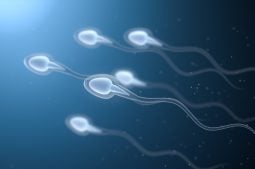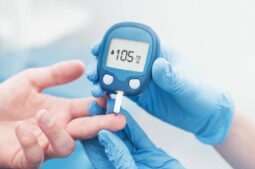Fertility Boosting Foods can be an optimal way to increase your chances of becoming pregnant. Numerous studies indicate that women with overweight or obesity face greater challenges in conceiving, both naturally and through assisted reproductive treatments. Similarly, it has been demonstrated that women with a BMI above 25 experience higher miscarriage rates.
Obesity and overweight negatively affect ovulation by disrupting the maturation of ovarian follicles and increasing their degeneration, leading to poorer egg quality. Furthermore, a high percentage of body fat can elevate estrogen levels, causing irregular menstrual cycles and abnormal ovulation.
Conversely, women with poor nutrition and a BMI below 20 may also struggle to achieve pregnancy, as they are more prone to anovulation or amenorrhea, characterized by the absence of menstrual periods.
In both scenarios, proper nutrition is key. Adopting a fertility-focused diet rich in essential nutrients is highly recommended.
Fertility boosting foods: What to Eat to Promote Fertility
Fertility is a critical factor when seeking pregnancy. While numerous reasons may cause difficulties in conceiving, nutrition plays an essential role in reproductive health for both women and men. Nutrient-rich foods containing vitamins and minerals can improve egg quality, sperm production, and hormonal balance, facilitating conception.
Rather than focusing on a single food, it’s important to incorporate a variety of essential nutrients to optimize reproductive function. Foods rich in antioxidants, omega-3 fatty acids, vitamins, and minerals are particularly beneficial as they reduce oxidative stress, enhance hormonal health, and create a supportive environment for gestation.
The following food groups are especially advantageous for improving fertility:
- Fresh fruits and vegetables: High in antioxidants and vitamins A, C, and E, they protect reproductive cells from free radical damage and support healthy menstrual cycles.
- Whole grains and legumes: Complex carbohydrates help stabilize blood sugar levels and improve hormonal health.
- Lean proteins and healthy fats: High-quality proteins and unsaturated fats, such as those in olive oil, avocados, and nuts, support hormonal balance.
- Full-fat dairy: While low-fat dairy has been debated, some studies suggest that full-fat dairy is associated with improved fertility due to its essential nutrients like calcium and vitamin D.
- Nuts and seeds: Rich in vitamin E, zinc, and essential fatty acids, nuts and seeds (e.g., chia, flax, and pumpkin seeds) improve egg and sperm quality.
Fertility Boosting Foods for Women
Female fertility depends on factors such as hormonal balance, egg quality, and the overall health of the reproductive system. Specific foods can help optimize these areas and support reproductive goals.
Antioxidant-Rich Fruits and Vegetables
Brightly colored fruits and vegetables are excellent sources of antioxidants, which combat cellular damage caused by free radicals. This damage can affect both eggs and the uterine environment. Key examples include:
- Berries: Raspberries, blueberries, and strawberries are rich in antioxidants like anthocyanins that enhance egg quality and protect reproductive cell DNA.
- Leafy greens: Spinach and kale provide folic acid, essential for egg development and preventing neural tube defects in the fetus.
Omega-3 Fatty Acids
Omega-3 fatty acids are essential for hormonal balance and reproductive function in women. They help reduce inflammation and improve blood flow to reproductive organs, creating a healthy environment for conception. Sources of omega-3 include:
Fatty fish: Salmon, mackerel, and sardines are rich in EPA and DHA, which enhance egg quality and promote healthy pregnancies.
Plant-based options: Chia and flaxseeds are excellent omega-3 sources for vegetarians and vegans.
Iron-Rich Foods
Iron is crucial for optimal reproductive health. Deficiency can disrupt menstrual cycles and reduce ovulation. Iron-rich options include:
- Leafy greens: Spinach and Swiss chard provide non-heme iron, better absorbed when consumed with vitamin C-rich foods like citrus fruits.
- Lean meats: Red meats and poultry are good sources of heme iron, which is easily absorbed by the body.
Vitamin D
Vitamin D regulates reproductive hormones and egg quality. Adequate levels support regular ovulation and balanced menstrual cycles. Sources include:
- Fatty fish: Tuna, salmon, and trout are excellent sources of vitamin D.
- Fortified dairy: Vitamin D-fortified milk and yogurt are beneficial additions.
Fertility Boosting Foods for Men
Male fertility is equally important for conception. High-quality sperm requires optimal count, motility, and morphology. The following fertility boosting foods can enhance sperm production and quality:
Zinc
Zinc is essential for healthy sperm production and testosterone regulation. Deficiency can reduce sperm quantity and quality. Zinc-rich foods include:
- Lean meats and poultry: Excellent sources of zinc essential for male reproductive health.
- Nuts and seeds: Pumpkin seeds, sesame seeds, and nuts like almonds and peanuts are also rich in zinc.
Omega-3 Fatty Acids
Omega-3s improve sperm motility and morphology. Sources include:
- Fatty fish: Salmon and sardines.
- Plant-based options: Chia and flaxseeds provide plant-derived omega-3 fatty acids.
Vitamin C
Vitamin C is another essential antioxidant that protects sperm DNA from damage and enhances sperm motility. Foods rich in vitamin C include:
- Citrus fruits: Oranges, grapefruits, and lemons.
- Kiwi, strawberries, and bell peppers, which are particularly high in vitamin C and can be easily incorporated into a daily diet.
Folate (Vitamin B9)
Folate is vital for sperm production. Adequate levels improve sperm quality and reduce chromosomal abnormalities. Good sources include:
- Leafy greens: Broccoli, spinach, and kale.
- Legumes: Lentils, chickpeas, and beans.
Selenium
Selenium is crucial for sperm motility and protection against cellular damage. Selenium-rich foods include:
- Brazil nuts: One of the richest sources of selenium.
- Seafood: Shrimp and tuna are also selenium-rich.
Nutrition plays a pivotal role in fertility for both women and men. A diet rich in antioxidants, essential fatty acids, vitamins, and minerals can improve egg and sperm quality, balance hormones, and create an optimal environment for conception. By incorporating foods like fresh produce, fatty fish, nuts, seeds, and full-fat dairy, couples can enhance reproductive health and increase their chances of natural conception. Additionally, maintaining a healthy lifestyle with regular exercise and stress management is essential for improving fertility in the short and long term.





Comments are closed here.